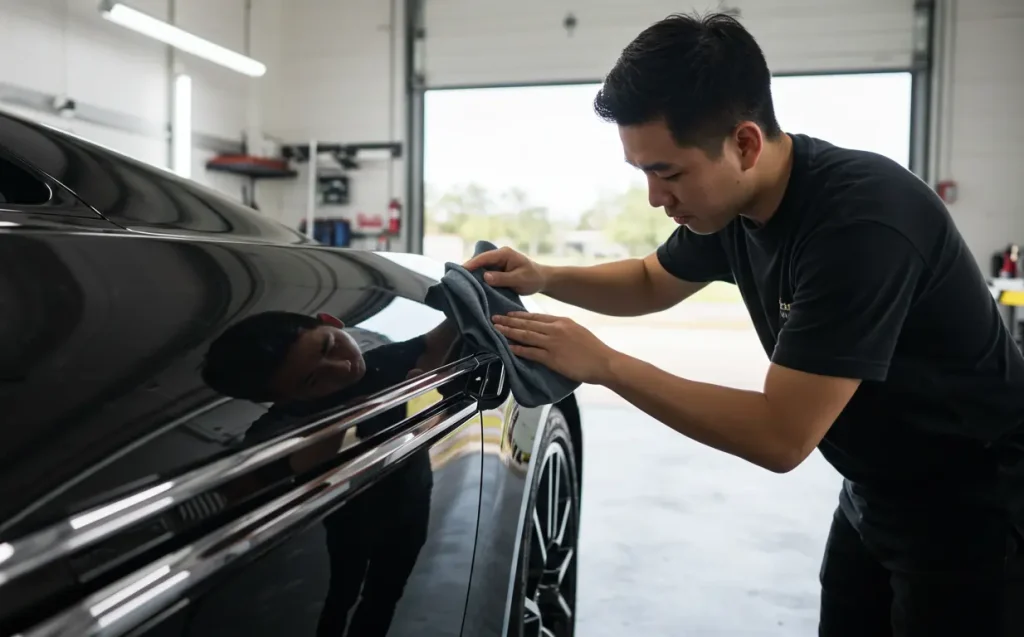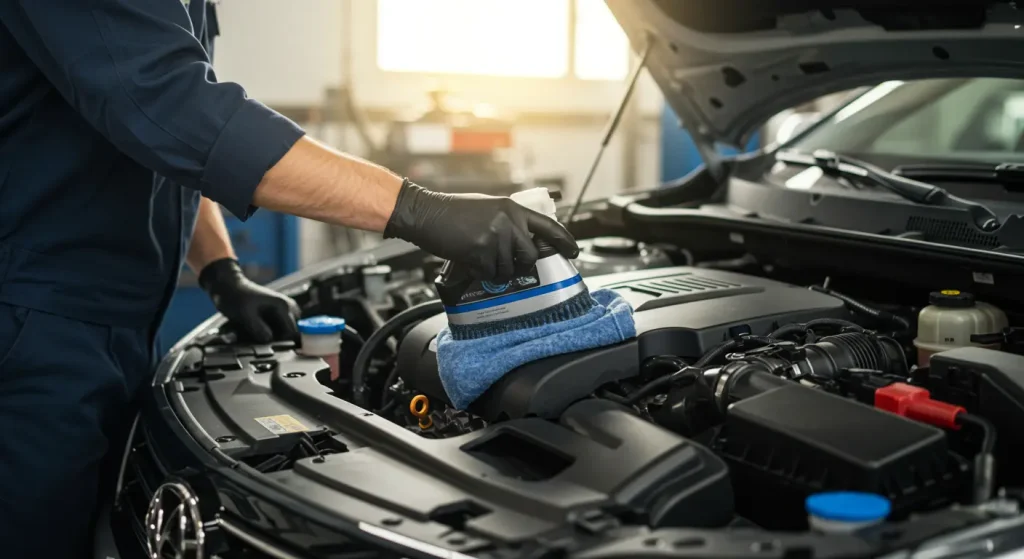TLC Meaning Cars | Why Your Vehicle Needs More Care
The phrase “TLC in cars” is used by car mechanics and owners all around the world. Generally, it refers to the maintenance and care required to keep a car in good shape.
Long-term issues can be avoided and better decisions can be made by owners who understand what TLC means for their vehicle. This article will do its best to help you understand the true TLC meaning cars.

What Does TLC Mean in Cars?
The correct TLC car meaning is “Tender Loving Care.” It is the term used to describe the care and upkeep a car requires to remain in good shape. It means routinely checking, maintaining, and repairing a vehicle to make sure it functions properly and lasts longer.
Oil changes, tire care, and maintaining a clean interior and exterior are a few examples of this. Taking good care of a car is important for responsible car ownership since it prevents serious issues and improves performance.
Why is TLC Important for Cars?
Cars benefit from TLC since it keeps them operating, safe, and long-lasting. Regular maintenance like tire inspections and cleaning keeps the car in good working order and avoids mechanical problems.
By lowering the possibility of malfunctions and mishaps brought on by worn-out components, proper maintenance also improves safety. A well-maintained vehicle also saves future expensive repairs and has a greater resale value.
Long-term dependability and an improved driving experience are guaranteed when a car receives the required TLC.
Common Aspects of TLC Meaning Cars
Taking good care of a car requires several important components of maintenance and upkeep. Regular maintenance helps to keep the car in good condition which increases safety and lifespan of vehicle. Here are some common aspects of TLC for vehicles:
Routine Maintenance
Regular maintenance is important for maintaining a car in good shape and avoiding disastrous mechanical failures. Regular maintenance means getting oil changes, checking and topping off basic fluids, and replacing old parts such as spark plugs and air filters. Regular performance of these activities guarantees improved fuel economy, smoother operation, and a longer engine life.
Tire Care and Inspection
The safety, fuel efficiency, and maneuverability of a car depend on tire care. Preventing uneven tire wear and enhancing driving safety can be achieved through regularly checking tire pressure and vehicle alignment. Without proper tire care, you will have to face excessive fuel consumption and increased chances of accidents.
Interior and Exterior Cleaning
Maintaining a car in clean condition on the inside and outside increases both looks and lifespan. Washing the outside keeps the paint and metal from rusting and getting damaged. Vacuuming and cleaning the interior keeps the interior neat and healthy.

Taking Care of Small Repairs Early
Repairing small problems before they become major ones can save time and money in the long term. Small problems such as scratches or small engine problems should be repaired early to prevent costly repairs down the road. Monitoring warning lights and strange noises can help identify potential issues before they become major ones.
Battery Maintenance
A car’s battery is needed to start the engine and energize electrical accessories. Monitoring the charge on the battery and replacing aged batteries on schedule can help avoid surprise failures. Maintaining a battery properly charged guarantees smooth operation, particularly under extreme weather conditions.
Signs Your Car Needs More TLC
It is important to take care of a car but at times, it can start giving signs that it requires more care. Disregarding these signs can result in bigger issues and expensive repairs. Here are some signs that your car requires more TLC:
Warning Lights on the Dashboard
If warning lights such as the check engine or battery light come on, it’s obvious that something is wrong. These lights show problems from low fluids to engine issues that must be addressed right away. Not fixing them can result in major damage and costly repairs.
Unusual Noises
Unusual noises such as grinding or knocking noises can be signs of mechanical issues. These can be due to worn-out brake pads or engine problems that must be addressed. Repairing unusual sounds at an early stage avoids expensive repair bills and ensures your car is running smoothly.
Reduced Fuel Efficiency
If your car is consuming more fuel than normal, it can require maintenance. Issues such as clogged air filters or engine problems can decrease fuel efficiency. Proper TLC and regular servicing can restore improved mileage and cut down on fuel costs.
Rough or Delayed Acceleration
A hesitant or unresponsive car can have a problem with the engine or transmission. All of these can be caused by dirty fuel injectors or worn spark plugs which can all damage performance. Having these diagnosed and repaired can help your car be more responsive.
Shaking or Vibrations When Driving
If your car shakes or vibrates during driving, it can be caused by unbalanced tires or brake problems. Driving under such conditions makes it unsafe and can result in more damage. An expert examination can diagnose and fix the issue.
Trouble Starting the Car
A car that won’t start or stalls on the second try can have a weak battery, bad starter, or faulty fuel system. Check the battery now and then and replace it on time to prevent breakdowns. If still the problem is not resolved, the electrical system should be checked by a mechanic.
Unpleasant Odors Inside the Car
Unusual odors such as burning or gasoline tend to be signs of mechanical issues or cleanliness problems. An overheating brake or electrical fault could cause a burning smell while a moldy smell can mean there is mold in the air conditioning. Regular cleaning and maintenance of mechanical problems can avoid long-term damage.
Conclusion
Taking proper maintenance of a car extends its life and keeps it safe on the road. Regular maintenance and minor repairs avoid major issues and costly repairs. If you ignore warning indicators such as unusual noises or low fuel economy, your car will face breakdowns.
Giving a car the maintenance it requires allows owners to enjoy improved performance and prevent costly repairs. A little TLC goes a long way toward maintaining a car in good condition.
FAQs
What Are Common Ways to Give a Car TLC?
TLC consists of regular maintenance such as oil changes, air filter replacement, and cleaning the vehicle both inside and out. It also involves performing minor repairs ahead of time such as repairing warning lights and battery health.
How Often Should I Provide TLC to My Car?
Routine maintenance such as tire pressure and oil checks must be done once a month. Proper servicing such as brake checks and oil changes should be done according to the manufacturer’s guidelines which is every 5,000–10,000 km.
What Are Indicators That My Car Requires More TLC?
Some usual symptoms are dashboard lights, strange noises, bad gas mileage, jerky acceleration, and hard starts. Other symptoms can be shaking when driving and excessive exhaust smoke.